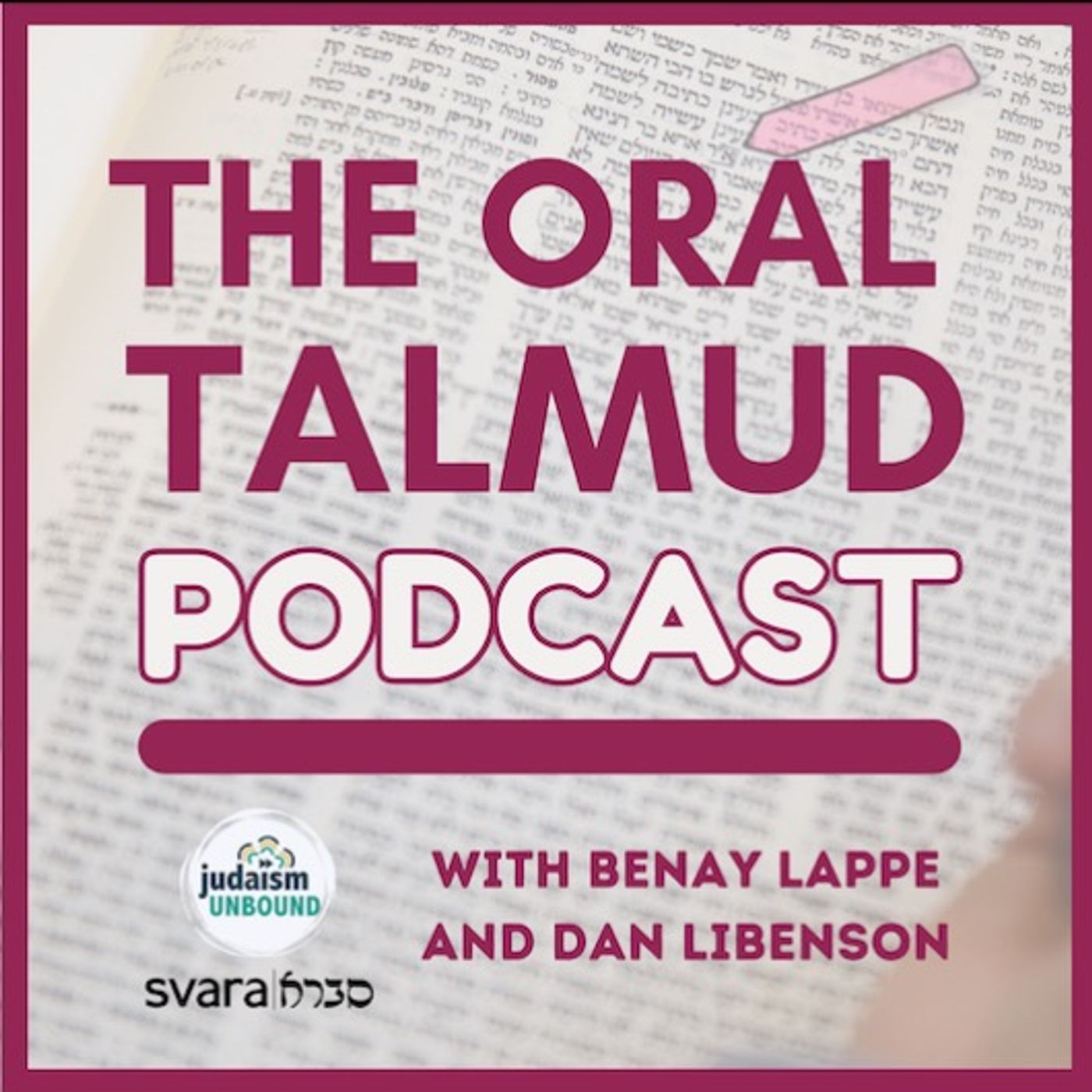The Oral Talmud

The Oral Talmud
Podcast Description
An introduction to the Talmud through the “traditionally radical” lens pioneered by Benay Lappe. She, along with co-host Dan Libenson, will explore key stories and other material from the Talmud that was left there by the early Rabbis as a how-to manual for re-imagining Judaism after the previous version “crashes.” In alternating weeks, we will interview leading scholars of and thinkers on Talmud to understand the Talmud more deeply from the perspective of contemporary academic study and creative re-interpretation.
Podcast Insights
Content Themes
The podcast delves into themes of Jewish re-imagination, exploring foundational stories from the Talmud such as the covenant at Mount Sinai and Rabbi Yochanan ben Zakkai's reformative actions post-destruction of the Temple. It tackles topics like the power dynamics involved in covenant acceptance and the implications of these narratives for modern Jewish practice and faith.

An exploration of the Talmud through the “traditionally radical” lens pioneered by Benay Lappe. Whether you are a beginner to Talmud study or a long-time learner, by listening in on Benay Lappe’s study partnership with Dan Libenson as they explore foundational stories and material from the Talmud, you will discover the how-to manual that the ancient Rabbis left behind for future generations to help us re-imagine a new version of Judaism after the previous version “crashes.”
“The big error is to imagine that a general principle of interpretation applies only to the case in which we learned it.” – Dan Libenson
Welcome to The Oral Talmud, our weekly deep dive chevruta study partnership, discovering how voices of the Talmud from 1500 years ago can help us rethink Judaism today.
This week Dan & Benay work through to the end of the case of a person who is sick and needs to eat (and not fast) on Yom Kippur. We recognize this whole section of Talmud to be a sampler – a presentation of the many moves available to the clever sage who is dedicated to the work of changing the system, rather than letting people suffer.
Do we want Supreme Court justices who read and reinterpret text like the rabbis of this sugya? How do we react when people use otherwise liberatory tools in harmful ways? What might the results-oriented jurisprudence of this case indicate about the larger debates that our Talmud editors were dealing with in their time? Especially if we believe that by the time all of these defensive arguments were being spelled out, it was the established practice that people who need to should eat on Yom Kippur? What is the role of a constitution in protecting minorities? Recognizing and responding to suffering? When we’re suffering under a system now, what can we do? What can we utilize from our learning to help us?
This week’s text: “Lev Yodea Marat Nafsho” (Yoma 82a & 83a – Part 3)
Find an edited transcript and full shownotes (references and further reading) on The Oral Talmud webpage for this episode! Access the Sefaria Source Sheet to explore key Talmud texts and find the original video of our discussion. The Oral Talmud is a co-production of Judaism Unbound and SVARA: A Traditionally Radical Yeshiva. If you’re enjoying this podcast, please help us keep both fabulous Jewish organizations going with a one-time or monthly tax-deductible donation at oraltalmud.com. You can find a donate button on the top right corner of the website.

Disclaimer
This podcast’s information is provided for general reference and was obtained from publicly accessible sources. The Podcast Collaborative neither produces nor verifies the content, accuracy, or suitability of this podcast. Views and opinions belong solely to the podcast creators and guests.
For a complete disclaimer, please see our Full Disclaimer on the archive page. The Podcast Collaborative bears no responsibility for the podcast’s themes, language, or overall content. Listener discretion is advised. Read our Terms of Use and Privacy Policy for more details.